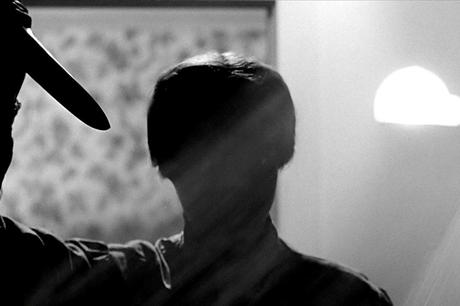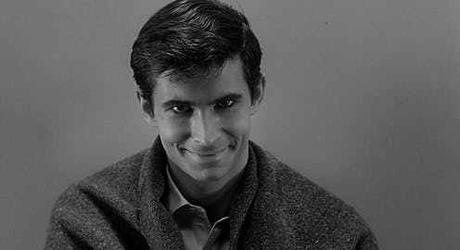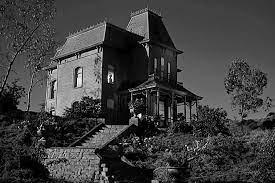Retro Review: 'Psycho'

In 1960, director Alfred Hitchcock was on an entirely different plane than most of his colleagues. Each of his suspense-filled films were so distinctively his that we had to create the word "Hitchcokian" to describe them. While each of these thrillers were box office hits for the studio, critics also praised them as works of cinematic art. In addition to this his television series, Alfred Hitchcock Present was a staple of the small screen as well. This combination of auteur and blockbuster machine was rare and guaranteed the Master of Suspense absolute freedom for his next picture. While any other director would have used this to create a grand epic, Hitchcock decided to challenge himself. He purchased the rights to Robert Bloch's best-seller Psycho and limited the scope of the production keeping things small forcing him to be creative with the resources at his disposal. The result was a masterpiece which forever changed the horror genre and cinema as a whole forever.
After helping herself to from her employer, Marion Crane heads out on the run. Along the way she ends up at the Bates Motel, run by the boyish, unassuming Norman Bates and his aloof "mother". After meeting her violent demise in an iconic shower, others come looking for the missing woman. Her sister, a private detective, and her lover all find their way to the Bates Motel where Norman will let them check-in, but they may not always check-out. It all leads to one of the most shocking endings in cinema history.

Upon its release, Alfred Hitchcock used his influence to ensure control over each screenings. Nobody was permitted to enter the theater once the film rolled and nobody was allowed to leave until it finished. In addition, Hitch pushed promos swearing the secrecy those who had seen it. This entire campaign seems to have been influenced by B-horror maestros of the era like William Castle and Roger Corman who found inventive ways to sell tickets to unsuspecting patrons. The secrecy of this movement does seem to be warranted as Psycho has plenty of twists and turns in its plot which should if spoiled would ruin the entire experience. Hitch cleverly took liberties with the acclaimed source material to truly craft his vision, by notably his take on the antagonist Norman Bates. In Robert Bloch's novel, Bates was your stereotypical killer a slovenly guy who lumbered around, but in the film Psycho we get famed character actor Anthony Perkins. He has this disarming boyish charm like many true life serial killers possess, lulling potential victims into a false sense of security as they interact with someone they find a bit odd but ultimately harmless. In an odd way those of us watching the film connect with him as well because of this (assuming we have not had the ending spoiled for us yet). We see him as a dutiful son trapped by a murderous maternal figure into covering for her. In the scene when he is sinking the car with Marion's body in it into the bog we get so sucked into it, we feel his jolt of panic when the car stops for a brief moment possibly leaving the evidence of the crime in the open.
One of the things which truly helped Psycho to instill fear into the audience is by letting you know nobody was safe. Actress Janet Leigh was a star who held top billing for the film, so those watching the film knew she would emerge safe at the end. This makes it all the more shocking when she is killed off by the first act of the film. In one of cinema's greatest scenes Leigh's character met a bloody fate while in the shower. With meticulous detail Hitchcock oversaw every aspect of this scene and the end result was a rapidly cut piece of terror which assaults the viewer. To read more about this Classic Scene click . This revolutionary tactic worked masterfully and seemed to have left an impression on the great Wes Craven who paid tribute to it in both A Nightmare on Elm Street and Scream. Film Noir Foundation president Eddie Muller brought a unique perspective to this tactic remarking how this single scene marked the end of the film noir and the beginning of the slasher a cinematic transition of sorts. He has an excellent point, as up until this point we do have the set-up for a film noir, with a femme fatale stealing a fortune and going on the run dealing with the moral dilemna. It is once she is stabbed to death that Psycho morphs into the proto-slasher that it is giving audiences something few had ever seen before.

This horror masterpiece is one that from the start audiences are on the edge of their seat. The classic Hitchcock strategy of letting the audience in on the peril the characters are in while they themselves are oblivious, is put to perfect use here. In watching this film, we are all perfectly aware that a dangerous murderer is lurking on the grounds of the old motel and we can only watch in horror as those looking for Marion Crane gravitate to it and the the violent fates which could await them. Even still viewers even had the rug pulled out from them when we reach the climax and learn the truth about Miss Bates and Norman's unique bond with his mother.
It has been said so many times that the end of Psycho is its only flaw. Tacked on before the credits roll the studio mandated a scene wherein a psychiatric professional explains the full depth of Norman Bates' madness. With most horror movie villains, the less you know about them the scarier they are because they maintain an aura of mystery that was torn away from Bates. Not only is this scene insulting to both the audience, but also those in real life who suffer from mental illness. You can tell by how plainly it this scene is shot that even Hitchcock was less than thrilled about putting it in the film But in the grand scheme of things this is small potatoes as it were if this is the biggest flaw in your movie. It did not stop Psycho from becoming a game changer of the horror genre and a certified film classic.

